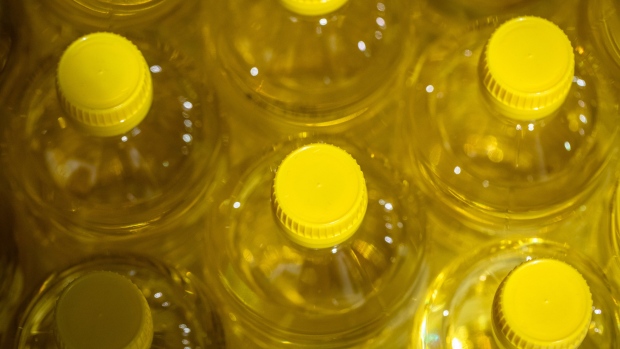Jun 8, 2022
Kenya Edible Oils Refiner Suspends Operations on Dollar Shortage
, Bloomberg News

(Bloomberg) -- Top Kenyan edible-oil producers, including Pwani Oil Products Ltd. and Kapa Oil Refineries Ltd., temporarily halted operations at their factories, citing disruptions due to a shortage of dollars.
Manufacturers are facing challenges “in accessing US dollars used in paying for imports of crucial raw materials,” Pwani Oil’s Commercial Director Rajul Malde said in a statement. The company’s refinery in the coastal town of Kilifi will remain closed “as we work to resolve the problem,” Malde said, adding that it hasn’t affected the availability of products in retail outlets.
Businesses in several African countries have reported a shortage of dollars amid increasing pressure on domestic currencies. Investors have been fleeing emerging and frontier markets following rising interest rates in developed nations and a jump in commodity prices. In Malawi, the central bank devalued the kwacha by 25% against the dollar as part of measures to address scarcity of the greenback.
Pwani Oil offered its distributors an option of paying for its cooking oils and soaps in dollars, saying the banks weren’t providing enough foreign currency for their import requirements, Nairobi-based Business Daily newspaper reported on Tuesday, citing Malde.
Pwani Oil, whose refining capacity tops 1,000 tonnes a day, and Kapa Oil are among the biggest producers of edible oils in Kenya. The country imported more than 240,000 tonnes of animal and vegetable oils in the three months through September, according to data from the statistics office.
Kapa Oil is operating below capacity because the dollar scarcity has made it difficult to source raw materials, Marketing Manager Sid Shah said in an emailed response to questions. “Unless the situation improves, there may soon be shortages of products in the market.”
Kenya Association of Manufacturers said its members are finding difficulty in accessing dollars and warned of a risk of a parallel foreign currency market. Importers were paying 120 shillings or higher per dollar, which is above the officially quoted rates, the industry lobby said.
Kenya’s shilling was little changed at 117.01 to a dollar at 4:58 p.m. in Nairobi.
The Central Bank of Kenya and the National Treasury both dismissed claims of a dollar shortage, saying their is sufficient foreign currency in the market, with reserves at $8.2 billion able to meet almost five months of imports.
Some manufacturers were buying more dollars than they need and therefore creating an “artificial shortage,” National Treasury Permanent Secretary Julius Muia told reporters in Nairobi on Tuesday.
(Updates with comment from Kapa Oil in sixth paragraph.)
©2022 Bloomberg L.P.






